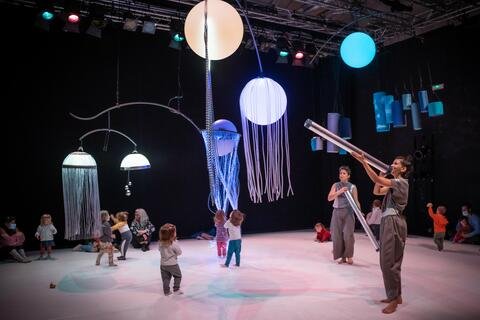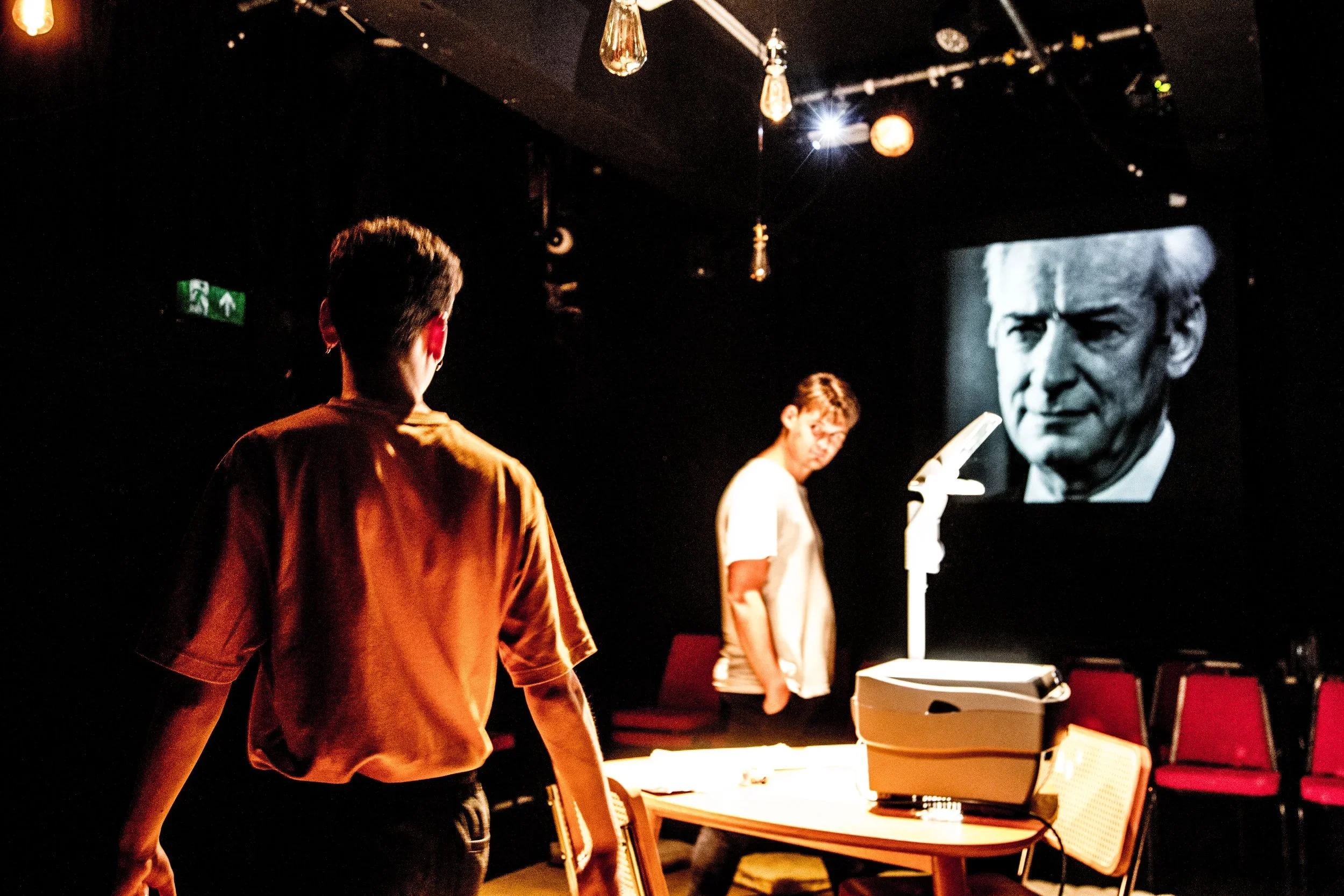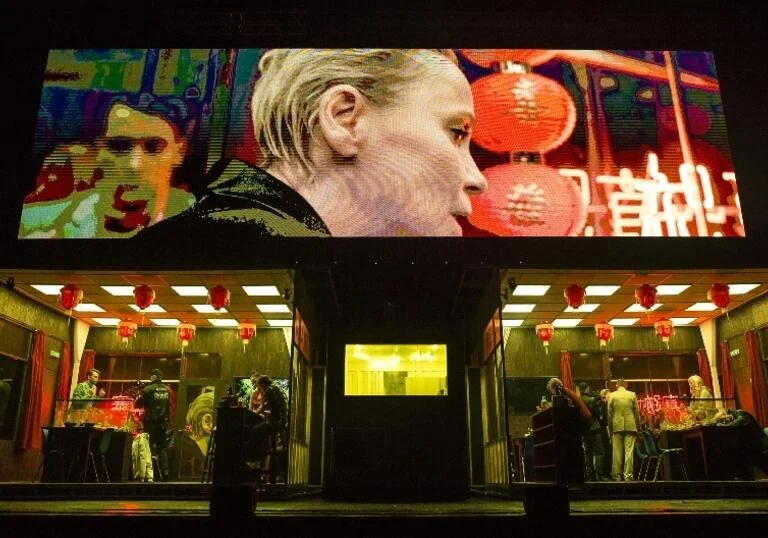Univers is a delightfully playful immersive and interactive performance targeted for 0-2 year olds. The playing space is a big white square, with objects hanging on mobiles; at first the audience are situated sat around the square, but before going in to the performing space we are briefed that only those under 2 can come into the white square to play. This is theatre for them, and to some extent, by them.
As the performance begins, sound plays a big role. The actors are mic’d, making sound effects which are amplified and enhanced to echo and reverberate. There is a musician playing live bass notes to accompany the two actors, further enhancing the soundscape, creating a magical quality. With ease, the performers activity invites the young children into the space, and immediately they begin to play with an array of evolving objects.
It was magical to watch the space unfold, masterfully directed and manipulated to create the arc of the story while allowing space for the young audience to explore and interact as they wanted to.
The production as a whole was beautifully crafted, and the direction and sound design deserve a special mention. Overall it was delightfully innovative work, fascinating to watch unfold (even if I’m too big to play). A sense of wonder and curiosity permeated every moment.













